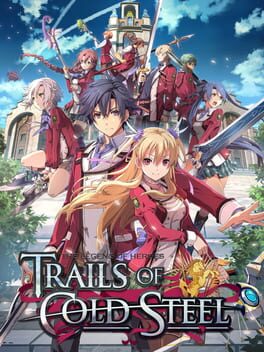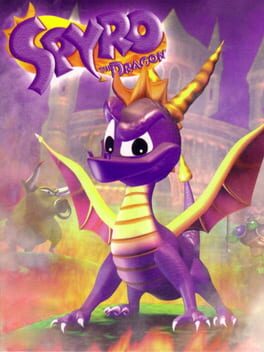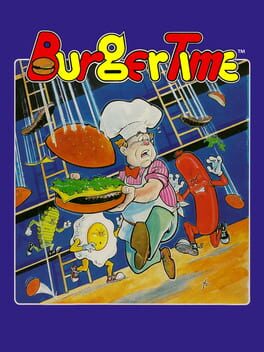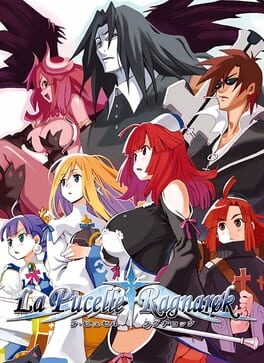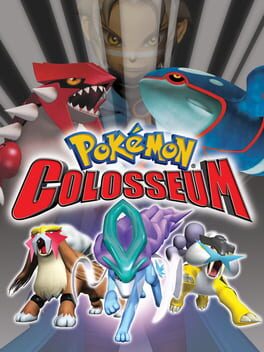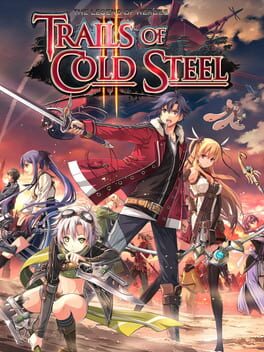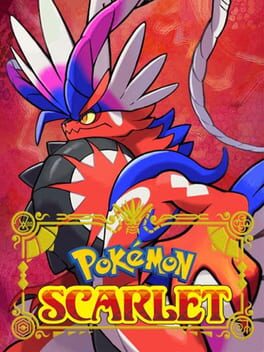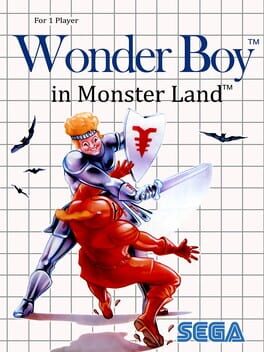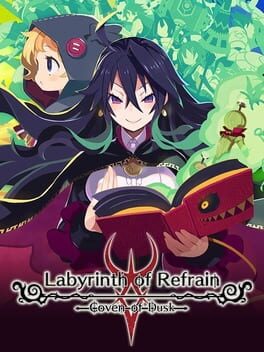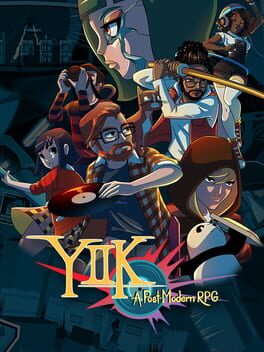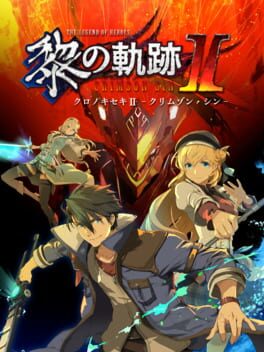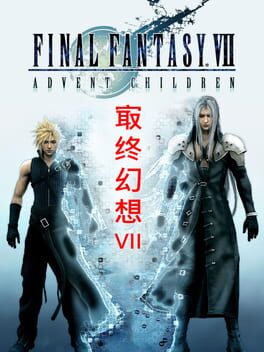97 Reviews liked by Rola
Spyro the Dragon
1998
Sometimes less is more.
Spyro the Dragon was the very first video game I ever played and the original trilogy was an integral part of my childhood. While I'd like to preface this review by stating that I do have a distinct nostalgic bias for this game, I feel that it still holds up quite well in terms of presentation and level design. Spyro 1 is a simplistic approach to a collectathon platformer where your toolkit consists of a flame breath to torch enemies, a glide to traverse from one platform to another, and a charge which acts as a hybrid tool for both moving at a quicker speed and defeating enemies by knocking them out of your way. The end result is a game that is relatively laid-back, especially since you have access to all of these controls right from the very beginning of the game. It occasionally spices things up through a flight level once per home world, or through the supercharge which is introduced in the Magic Crafters home world and every level that features it is carefully designed around this mechanic and rewards exploration with it. While there's an occasionally tricky glide to make here and there or a platform to reach that requires thinking a bit outside the box with the supercharge powerup, Spyro 1 is a really relaxed platformer where you go into each stage, casually explore until you unearth all of its treasure and save all the dragons, and then move onto the next with no backtracking necessary if you want to aim for full completion. Backtracking is an element that's fairly negligible to me in a game with levels as short as this, but it's neat that there's absolutely none of it within this game when so many of its contemporaries require it for full completion. I also like how every single level in the game is tied in with their respective home world aesthetically.
I also can't talk about Spyro without bringing mention to its incredibly distinct soundtrack, which was composed by Stewart Copeland. Every single track in the game has a whimsical feel to it which compliments the art direction wonderfully, and the use of percussion really stands out. It's so satisfying to charge around as Spyro while hearing a whole bunch of awesome drum beats in the background! I've always really liked the soundtrack ever since I was a young kid, but returning back to this gives me newfound appreciation for it.
I was pleasantly surprised by how well this game held up for me. While it doesn't offer much in terms of challenge for those looking for it, it's perfect for a bit of casual platforming to unwind to after a tiring day at work, and also has a really pleasant, lighthearted tone to accompany its gameplay. One of my ultimate comfort games.
Spyro the Dragon was the very first video game I ever played and the original trilogy was an integral part of my childhood. While I'd like to preface this review by stating that I do have a distinct nostalgic bias for this game, I feel that it still holds up quite well in terms of presentation and level design. Spyro 1 is a simplistic approach to a collectathon platformer where your toolkit consists of a flame breath to torch enemies, a glide to traverse from one platform to another, and a charge which acts as a hybrid tool for both moving at a quicker speed and defeating enemies by knocking them out of your way. The end result is a game that is relatively laid-back, especially since you have access to all of these controls right from the very beginning of the game. It occasionally spices things up through a flight level once per home world, or through the supercharge which is introduced in the Magic Crafters home world and every level that features it is carefully designed around this mechanic and rewards exploration with it. While there's an occasionally tricky glide to make here and there or a platform to reach that requires thinking a bit outside the box with the supercharge powerup, Spyro 1 is a really relaxed platformer where you go into each stage, casually explore until you unearth all of its treasure and save all the dragons, and then move onto the next with no backtracking necessary if you want to aim for full completion. Backtracking is an element that's fairly negligible to me in a game with levels as short as this, but it's neat that there's absolutely none of it within this game when so many of its contemporaries require it for full completion. I also like how every single level in the game is tied in with their respective home world aesthetically.
I also can't talk about Spyro without bringing mention to its incredibly distinct soundtrack, which was composed by Stewart Copeland. Every single track in the game has a whimsical feel to it which compliments the art direction wonderfully, and the use of percussion really stands out. It's so satisfying to charge around as Spyro while hearing a whole bunch of awesome drum beats in the background! I've always really liked the soundtrack ever since I was a young kid, but returning back to this gives me newfound appreciation for it.
I was pleasantly surprised by how well this game held up for me. While it doesn't offer much in terms of challenge for those looking for it, it's perfect for a bit of casual platforming to unwind to after a tiring day at work, and also has a really pleasant, lighthearted tone to accompany its gameplay. One of my ultimate comfort games.
BurgerTime
1982
La Pucelle: Ragnarok
2009
Pokémon Colosseum
2003
Pokémon Scarlet
2022
A game I truly 100% completed, a rarity not usually possible for NIS games. But what I had was one of the greatest games I've enjoyed in recent years, a breath of fresh (or bitter) air compared to others I've been trying to sift through in recent times.
LoR is not a story about you, but a story about all the places you go, all the people you see, and the only story you get to be a part of is your make-believe gang of dolls being nothing but cogs in a machine that can push the story along. And boy, does that feel incredible.
The village of Refrain seems sleepy and unassuming at first, but the implications, events, and backstories all begin to add up over time, and while you can't really do too much about things yourself except to do someone's dirty work, you still get to feel all the more like you're a part of the story, even if I can agree some moments come off strange, a bit much, or just on par for the course for NIS. But giving each dungeon you go to a distinct individual story makes it feel satisfying to juggle both what you see in the meat of the action and what happens when you take a breather from it. While everyone may only be concerned about what happens up in the normal world, you get to see a bunch of crazy things and fights unfold that really establish each area for what it is. While you might not be some sort of saviour, or a revolutionary, and sometimes cause chaos instead, this Kino's Journey approach to things really lets you bask in one area without having to worry about other parts of the story. The pacing is great for this, and given the wonderful music again by Tenpei Sato, there are rarely dull moments.
I rarely play DRPGs, but LoR gives lots to do and explore, and there is a whole "postgame" area to do that's more invested than what any of the Disgaea games will try to do, to the point that I consider it required completion. Your team starts off small, but you can eventually feel the power once you amass a whopping max of 15 units. There are unique classes, skills, weapons, and customization to work with, even if some of the character designs are a bit abraisive. The way in which your party is assembled via pacts and not individual characters keeping their battle skills requires you to actually form a team to meet your needs and gets you to work with what you have, a dynamic that I haven't personally seen in much of the JRPG games I've played. Battles are fast enough and have generous skipping options, though some may not enjoy some of the RNG-based mechanics the game has to offer.
When I beat the game in 2020, I was left with a book-shaped hole in my heart. The game is not perfect by any means, and may not be enjoyable to all for how dark or iffy it can get (or abusive, which may not be excusable but perhaps isn't meant to be). However, to me, LoR had bouncy pacing that was still keeping me hooked all the way to the end, and while I do wish you got to understand more about all the places you have visited, I was satisfied knowing that it's not the point that everything needs a conclusion or understanding. You're just a passerby, and something more important awaits you. It's hard to talk about this game in detail because it was something I truly enjoyed with a blind perspective, and I definitely had the best gut instinct buying the game only an hour or so after playing it myself through shady means. I think that if you can stomach the later scenes that give the game its age rating, LoR offers an incredibly unique experience that shouldn't be missed - at least tried for those who want the idea of a good, not-so-convoluted story and all the fun things that come from spelunking dungeons. Luca so cool!
LoR is not a story about you, but a story about all the places you go, all the people you see, and the only story you get to be a part of is your make-believe gang of dolls being nothing but cogs in a machine that can push the story along. And boy, does that feel incredible.
The village of Refrain seems sleepy and unassuming at first, but the implications, events, and backstories all begin to add up over time, and while you can't really do too much about things yourself except to do someone's dirty work, you still get to feel all the more like you're a part of the story, even if I can agree some moments come off strange, a bit much, or just on par for the course for NIS. But giving each dungeon you go to a distinct individual story makes it feel satisfying to juggle both what you see in the meat of the action and what happens when you take a breather from it. While everyone may only be concerned about what happens up in the normal world, you get to see a bunch of crazy things and fights unfold that really establish each area for what it is. While you might not be some sort of saviour, or a revolutionary, and sometimes cause chaos instead, this Kino's Journey approach to things really lets you bask in one area without having to worry about other parts of the story. The pacing is great for this, and given the wonderful music again by Tenpei Sato, there are rarely dull moments.
I rarely play DRPGs, but LoR gives lots to do and explore, and there is a whole "postgame" area to do that's more invested than what any of the Disgaea games will try to do, to the point that I consider it required completion. Your team starts off small, but you can eventually feel the power once you amass a whopping max of 15 units. There are unique classes, skills, weapons, and customization to work with, even if some of the character designs are a bit abraisive. The way in which your party is assembled via pacts and not individual characters keeping their battle skills requires you to actually form a team to meet your needs and gets you to work with what you have, a dynamic that I haven't personally seen in much of the JRPG games I've played. Battles are fast enough and have generous skipping options, though some may not enjoy some of the RNG-based mechanics the game has to offer.
When I beat the game in 2020, I was left with a book-shaped hole in my heart. The game is not perfect by any means, and may not be enjoyable to all for how dark or iffy it can get (or abusive, which may not be excusable but perhaps isn't meant to be). However, to me, LoR had bouncy pacing that was still keeping me hooked all the way to the end, and while I do wish you got to understand more about all the places you have visited, I was satisfied knowing that it's not the point that everything needs a conclusion or understanding. You're just a passerby, and something more important awaits you. It's hard to talk about this game in detail because it was something I truly enjoyed with a blind perspective, and I definitely had the best gut instinct buying the game only an hour or so after playing it myself through shady means. I think that if you can stomach the later scenes that give the game its age rating, LoR offers an incredibly unique experience that shouldn't be missed - at least tried for those who want the idea of a good, not-so-convoluted story and all the fun things that come from spelunking dungeons. Luca so cool!
This review contains spoilers
Finally, after all these years, all this waiting...a sequel to Metal Gear Solid 4.
Less of an elegant melding of the design philosophies of Xenoblade 1 and 2 and more a Burnout-Esque car crash of systems, careening discordant mechanics at each other again and again, piling mechanic upon mechanic upon mechanic, leaving each one shattered by impact, until finally, just when it would be funniest to...another system comes screaming in and collides with the pile-up. On paper, Xenoblade 3 seems like it might really be the best of both worlds, but paper is famously two-dimensional. Practice reveals that Xenoblade 3's complete incoherence, its inability to make any single element of its design work fully with any other results in a game that was, for me, actively unpleasant and frustrating to play through.
So many things about Xenoblade 3 reward you with experience points, be they sidequests, chain attacks, or exploration, and certainly the most fun I had in Xenoblade 3 was the initial thrill of abusing the chain attack to get 1000% extra EXP and go up like 4 levels at once. But because the ability to level down to keep apace with the level curve of the main quest is bafflingly locked behind New Game+, and because fighting enemies below your level substantially slows down the unlocking of your Jobs, which the game encourages you to switch near constantly but also encourages you to remain on a single job so that others can use it too, what gaining that EXP practically means is a short burst of endorphins at seeing Number Go Up in exchange for an hour or two of staid misery as your progression grinds to a halt and you languish in a party composition you aren't enjoying so that you can unlock one you do like later. A game where you are punished for progression, and punished for not progressing by potentially missing out on the first game in the trilogy where there is more than a handful of sidequests with actual stories and meaningful gameplay unlocks in them. Xenoblade 3 represents the point where the memetic maximalism of the series, something I have always enjoyed about it, finally buckles and collapses under it's own weight, the cumulative effect of all this is being that you are left with a game built on systems of rewards that actively work against things the rest of it is doing, that make the game frustrating and unpleasant to play, the RPG design equivalent of being pulled in 4 separate directions by each of your limbs.
The story produces a similar effect. While the pretty great core cast provides a solid foundation for the game, thematically or stylistically there's not a single theme or idea that Xenoblade 3 brings up that it will not at some point contradict or muddy, not a single thing it ever fully commits to. Sometimes this is borderline parody, like the scene where the party rages with righteous fury at members of Mobius for having the temerity to treat killing people as a game, only to then in the very next screen meet a hero character who treats killing people as a game that every single character is completely on board with except for Eunie, who is chided for the crime of consistency and is asked to undergo a sidequest character arc in order to stop committing it. It often has the feel of a first draft, especially in how characters significant to the histories of our crew are introduced in flashback seconds before they reappear in the present to have a dramatic and tearful finale. Down to the very basics, the broad theme that comprises so much of the story and the gameplay, of two disparate peoples doing good by coming together, is shattered by an ending that sees their separation as a tragic necessity. By any conventional standards of narrative or mechanical coherence, Xenoblade Chronicles 3 is an unmitigated disaster.
This isn't a unique failing of this game, however. Some of this is not unique to Xenoblade 3, but rather represents a degree of exhaustion I have with elements of Xenoblade that have remained unchanging. Xenoblade has always taken influence from MMORPGs, but it's influences have never really extended beyond the experience of the player character. Playing through raid or even dungeon bosses in an MMO, with their own discrete mechanics and designs that throw wrenches into your rotations you must react to, alongside Xenoblade 3 thoroughly demonstrates that if Xenoblade is a single-player MMO, it is a single-player MMO where every single enemy is a mob, where every single fight plays out almost the exact same way. Whether you are fighting a lowly bunnit or the God of Genesis, you're going to be just trying to execute your rotation all the same. And the rotations themselves are incredibly simple, the actual challenge is navigating around the uniformly terrible AI of your squadmates. The chain attack has always felt like a concession to this, and never more so than here, where at almost any time the + button lets you opt into a mode of play that tosses out basically the entire rest of the battle system to play a minigame that also happens to be a completely dominant strategy that is more powerful than anything else in the game, at the cost of being incredibly drawn-out and boring. Similarly, the world design, which is basically the same as the prior games but much wider, exposes just how uninteresting these spaces are to explore when the visuals and atmosphere aren't doing the heavy lifting. But Aionios is a particularly bland and staid world, with precious little interesting visual scenery and barely buoyed by a soundtrack that, Mobius themes aside, I found almost totally unmemorable. Both in the things it takes away from prior games that may have distracted from it, and the things it does itself, Xenoblade 3 does an admirable job at demonstrating the rot at the core of this entire series, the flaws and failings that have always been there, brought into the light more completely for the first time.
And it almost works. It genuinely, sincerely, almost works.
The world of Xenoblade 3 is a literal mash-up of the worlds of Xenoblade 1 and 2, a staid, in-between world maintained in eternal stasis and backward-looking by a group of (awfully-dressed) manchildren who treat all of this as consequence-less entertainment for themselves, who hang out in a theater watching clips from the world outside as if they are little more than episodes of a weekly seasonal anime. This lack of coherence, the way the writing never takes more than a step without stumbling, the way the ungodly chimera of systems and mechanics makes simply existing in Aionios feel genuinely stressful for me, against all odds does manage to feel resonant with the parts of the story that are about how existing in this singular moment is awful, how we need to forcefully draw a line under all this and move on. When characters talk about how much they hate this world, I sincerely agree with them. I hate it because the time I have spent here, because I have hiked across its vast empty wastes, seeing off dead bodies in a spiritual ritual reduced to a Crackdown Orb, because I have fought the battles of this endless war between Keves and Agnus and found them to be unpleasant and unsatisfying, because I have found the carrots of progression it offers to be hollow and tasteless. Xenoblade Chronicles 3 earnestly and sincerely represents a formal boldness that I genuinely did not think Monolith Soft was capable of, a willingness to produce a game where the act of playing feels terrible in order to underscore its point about how the world it presents must be ended. Even if it's lack of materialism and eagerness to abstract it's themes means it's never going to hit me like games that name their enemy (I've seen people talk about XB3 as an anti-capitalist game and while I can see how it's talk about destroying the Endless Now would be resonant with feelings like that, I'd like to direct your attention towards the early scene where a nopon explains the Free Market to the party and they all go "that's so poggers" and also the unbridled Shinzo Abe-ness of certain scenes, you know the ones) it nonetheless represents Xenoblade going further and reaching higher than, frankly, I ever thought it capable of. When a late-game boss starting randomly spouting contextless lines from Xenogears' theme song, I knew that some part of this game knew what was up.
I wish the rest of it did.
Perhaps Xenoblade 3 would be dishonest with itself if it did not also muddy and fumble the one part of it tying all the disparate strands together, but by indulging in earnest and straightforward nostalgia to an almost comical extent. One of the earliest things that intrigued me about Xenoblade 3 was how each of the two nations is ruled by a figurehead representation of a prominent waifu character from a prior game, where the uncritical worship of these characters is manufactured and exploited in order to maintain the endless war machine. It was cutting, it was incisive, and seemed self-aware, however briefly, of just how wretched the fandoms of these games are. Of course, it couldn't last. By the end, these figureheads are replaced with the Real Versions of these characters, who actually are uncritically good and brilliant and worthy of worship, whose immense power is absolutely necessary to destroy "The Endless Now", and also my willingness to find something that means anything in this mess. The one thing you absolutely cannot do when making a story about clinging to the past being wrong and bad is to parade around that same past as if it's the second coming, to indulge so completely in uncritical fanservice that buries anything interesting beneath tuneless self-indulgence that sounds like a thousand teenage boys yelling "BRO PEAK FICTION". If Xenoblade 3 isn't willing to commit to what it's doing, why should I? Why did I spend 100 hours of my life that I will never get back on a game that's just going to throw away everything interesting it's doing a the final hurdle? What was the point of any of this?
The angry tone of the prior passage is not how I feel now, given time to relax and reflect on the parts of the game that do genuinely work for me, like the main party (Eunie and Taion prove that Monolith Soft is in fact capable of writing a good romance, they have thus far simply chosen not to) and, of course, the parts that Really Don't Work, which are the things that worked most of all. But I'm not really able to get over that the one thing I found was truly interesting and exceptional about this game was something it just couldn't resist the allure of Servicing Fans enough to bring home. With Xenoblade Chronicles 3, Monolith Soft set out to prove that Xenoblade cannot continue the way it is, and the worst part is that they succeeded...just in a way that convinced me that the problem might lie deeper within Monolith Soft, not simply with Xenoblade itself.
Ultimately, I just think these games aren't for me anymore. I really gave it the best try I could, but I'm content to let the people who do still love them enjoy it themselves, whilst I let time turn it into a faded memory. The best Xenoblade, on paper? Definitely. But then, cardboard cut-outs don't make for great company, do they?
Less of an elegant melding of the design philosophies of Xenoblade 1 and 2 and more a Burnout-Esque car crash of systems, careening discordant mechanics at each other again and again, piling mechanic upon mechanic upon mechanic, leaving each one shattered by impact, until finally, just when it would be funniest to...another system comes screaming in and collides with the pile-up. On paper, Xenoblade 3 seems like it might really be the best of both worlds, but paper is famously two-dimensional. Practice reveals that Xenoblade 3's complete incoherence, its inability to make any single element of its design work fully with any other results in a game that was, for me, actively unpleasant and frustrating to play through.
So many things about Xenoblade 3 reward you with experience points, be they sidequests, chain attacks, or exploration, and certainly the most fun I had in Xenoblade 3 was the initial thrill of abusing the chain attack to get 1000% extra EXP and go up like 4 levels at once. But because the ability to level down to keep apace with the level curve of the main quest is bafflingly locked behind New Game+, and because fighting enemies below your level substantially slows down the unlocking of your Jobs, which the game encourages you to switch near constantly but also encourages you to remain on a single job so that others can use it too, what gaining that EXP practically means is a short burst of endorphins at seeing Number Go Up in exchange for an hour or two of staid misery as your progression grinds to a halt and you languish in a party composition you aren't enjoying so that you can unlock one you do like later. A game where you are punished for progression, and punished for not progressing by potentially missing out on the first game in the trilogy where there is more than a handful of sidequests with actual stories and meaningful gameplay unlocks in them. Xenoblade 3 represents the point where the memetic maximalism of the series, something I have always enjoyed about it, finally buckles and collapses under it's own weight, the cumulative effect of all this is being that you are left with a game built on systems of rewards that actively work against things the rest of it is doing, that make the game frustrating and unpleasant to play, the RPG design equivalent of being pulled in 4 separate directions by each of your limbs.
The story produces a similar effect. While the pretty great core cast provides a solid foundation for the game, thematically or stylistically there's not a single theme or idea that Xenoblade 3 brings up that it will not at some point contradict or muddy, not a single thing it ever fully commits to. Sometimes this is borderline parody, like the scene where the party rages with righteous fury at members of Mobius for having the temerity to treat killing people as a game, only to then in the very next screen meet a hero character who treats killing people as a game that every single character is completely on board with except for Eunie, who is chided for the crime of consistency and is asked to undergo a sidequest character arc in order to stop committing it. It often has the feel of a first draft, especially in how characters significant to the histories of our crew are introduced in flashback seconds before they reappear in the present to have a dramatic and tearful finale. Down to the very basics, the broad theme that comprises so much of the story and the gameplay, of two disparate peoples doing good by coming together, is shattered by an ending that sees their separation as a tragic necessity. By any conventional standards of narrative or mechanical coherence, Xenoblade Chronicles 3 is an unmitigated disaster.
This isn't a unique failing of this game, however. Some of this is not unique to Xenoblade 3, but rather represents a degree of exhaustion I have with elements of Xenoblade that have remained unchanging. Xenoblade has always taken influence from MMORPGs, but it's influences have never really extended beyond the experience of the player character. Playing through raid or even dungeon bosses in an MMO, with their own discrete mechanics and designs that throw wrenches into your rotations you must react to, alongside Xenoblade 3 thoroughly demonstrates that if Xenoblade is a single-player MMO, it is a single-player MMO where every single enemy is a mob, where every single fight plays out almost the exact same way. Whether you are fighting a lowly bunnit or the God of Genesis, you're going to be just trying to execute your rotation all the same. And the rotations themselves are incredibly simple, the actual challenge is navigating around the uniformly terrible AI of your squadmates. The chain attack has always felt like a concession to this, and never more so than here, where at almost any time the + button lets you opt into a mode of play that tosses out basically the entire rest of the battle system to play a minigame that also happens to be a completely dominant strategy that is more powerful than anything else in the game, at the cost of being incredibly drawn-out and boring. Similarly, the world design, which is basically the same as the prior games but much wider, exposes just how uninteresting these spaces are to explore when the visuals and atmosphere aren't doing the heavy lifting. But Aionios is a particularly bland and staid world, with precious little interesting visual scenery and barely buoyed by a soundtrack that, Mobius themes aside, I found almost totally unmemorable. Both in the things it takes away from prior games that may have distracted from it, and the things it does itself, Xenoblade 3 does an admirable job at demonstrating the rot at the core of this entire series, the flaws and failings that have always been there, brought into the light more completely for the first time.
And it almost works. It genuinely, sincerely, almost works.
The world of Xenoblade 3 is a literal mash-up of the worlds of Xenoblade 1 and 2, a staid, in-between world maintained in eternal stasis and backward-looking by a group of (awfully-dressed) manchildren who treat all of this as consequence-less entertainment for themselves, who hang out in a theater watching clips from the world outside as if they are little more than episodes of a weekly seasonal anime. This lack of coherence, the way the writing never takes more than a step without stumbling, the way the ungodly chimera of systems and mechanics makes simply existing in Aionios feel genuinely stressful for me, against all odds does manage to feel resonant with the parts of the story that are about how existing in this singular moment is awful, how we need to forcefully draw a line under all this and move on. When characters talk about how much they hate this world, I sincerely agree with them. I hate it because the time I have spent here, because I have hiked across its vast empty wastes, seeing off dead bodies in a spiritual ritual reduced to a Crackdown Orb, because I have fought the battles of this endless war between Keves and Agnus and found them to be unpleasant and unsatisfying, because I have found the carrots of progression it offers to be hollow and tasteless. Xenoblade Chronicles 3 earnestly and sincerely represents a formal boldness that I genuinely did not think Monolith Soft was capable of, a willingness to produce a game where the act of playing feels terrible in order to underscore its point about how the world it presents must be ended. Even if it's lack of materialism and eagerness to abstract it's themes means it's never going to hit me like games that name their enemy (I've seen people talk about XB3 as an anti-capitalist game and while I can see how it's talk about destroying the Endless Now would be resonant with feelings like that, I'd like to direct your attention towards the early scene where a nopon explains the Free Market to the party and they all go "that's so poggers" and also the unbridled Shinzo Abe-ness of certain scenes, you know the ones) it nonetheless represents Xenoblade going further and reaching higher than, frankly, I ever thought it capable of. When a late-game boss starting randomly spouting contextless lines from Xenogears' theme song, I knew that some part of this game knew what was up.
I wish the rest of it did.
Perhaps Xenoblade 3 would be dishonest with itself if it did not also muddy and fumble the one part of it tying all the disparate strands together, but by indulging in earnest and straightforward nostalgia to an almost comical extent. One of the earliest things that intrigued me about Xenoblade 3 was how each of the two nations is ruled by a figurehead representation of a prominent waifu character from a prior game, where the uncritical worship of these characters is manufactured and exploited in order to maintain the endless war machine. It was cutting, it was incisive, and seemed self-aware, however briefly, of just how wretched the fandoms of these games are. Of course, it couldn't last. By the end, these figureheads are replaced with the Real Versions of these characters, who actually are uncritically good and brilliant and worthy of worship, whose immense power is absolutely necessary to destroy "The Endless Now", and also my willingness to find something that means anything in this mess. The one thing you absolutely cannot do when making a story about clinging to the past being wrong and bad is to parade around that same past as if it's the second coming, to indulge so completely in uncritical fanservice that buries anything interesting beneath tuneless self-indulgence that sounds like a thousand teenage boys yelling "BRO PEAK FICTION". If Xenoblade 3 isn't willing to commit to what it's doing, why should I? Why did I spend 100 hours of my life that I will never get back on a game that's just going to throw away everything interesting it's doing a the final hurdle? What was the point of any of this?
The angry tone of the prior passage is not how I feel now, given time to relax and reflect on the parts of the game that do genuinely work for me, like the main party (Eunie and Taion prove that Monolith Soft is in fact capable of writing a good romance, they have thus far simply chosen not to) and, of course, the parts that Really Don't Work, which are the things that worked most of all. But I'm not really able to get over that the one thing I found was truly interesting and exceptional about this game was something it just couldn't resist the allure of Servicing Fans enough to bring home. With Xenoblade Chronicles 3, Monolith Soft set out to prove that Xenoblade cannot continue the way it is, and the worst part is that they succeeded...just in a way that convinced me that the problem might lie deeper within Monolith Soft, not simply with Xenoblade itself.
Ultimately, I just think these games aren't for me anymore. I really gave it the best try I could, but I'm content to let the people who do still love them enjoy it themselves, whilst I let time turn it into a faded memory. The best Xenoblade, on paper? Definitely. But then, cardboard cut-outs don't make for great company, do they?
